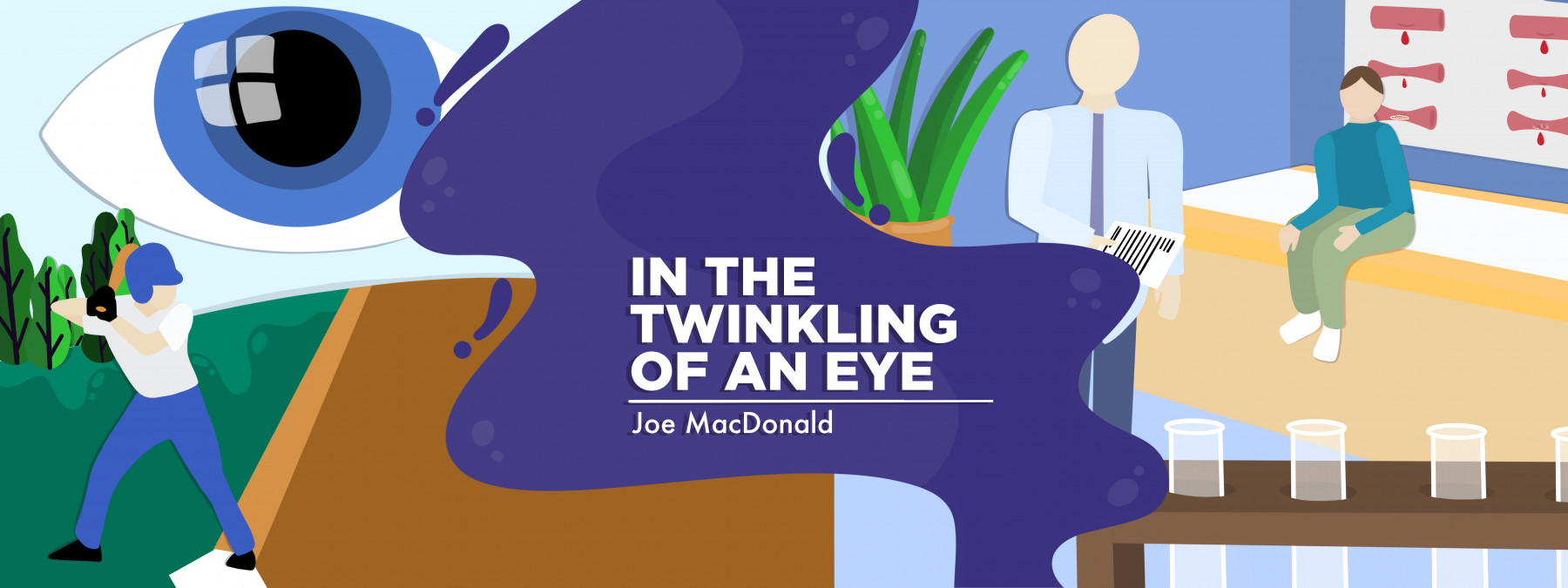Finding ways to help my son transition into adulthood
As my 18-year-old matures, my role as caregiver must evolve

My younger son, Caeleb, struggled to get to his feet and go to physical therapy today. His right ankle has very little cartilage because of hemophilia complications, and he often struggles to get around without the assistance of a cane or walker. He looked at me and said, “Dad, I don’t think I can get to physical therapy today. My ankle hurts too much.”
Immediately, my heart started racing; I wanted to be a strict drill sergeant and force him into the car. Luckily, I calmed down before I said a word. I implored him to see if his therapist could offer him any exercises to help with his chronic pain. I felt proud of myself for managing my internal panic and calmly asked Caeleb to try to get into the car. I thanked him for working through his pain as we raced to his appointment.
When I picked him up, I didn’t know what to expect. I released a relaxed sigh as I saw Caeleb working on a stretching machine. He looked much better than he did when we left the house. I complimented him on his improvement as we walked to my car with our eyes set on home. He acknowledged feeling a little better, but his ankle still hurt.
On our way home, Caeleb looked at me and, with absolute concern, asked, “Dad, what does my future look like? I can’t even think about getting a driver’s license because my ankle can’t withstand the movement required on the gas pedal. How will I hold down a job, much less get a degree? I don’t know what to do, and I’m scared.”
I looked into his green eyes and assured him we’d find a way forward. Inside, though, I felt the same sense of panic. I wondered if I could help him weather the storm of another hemophilia complication. My heart sank as I took in the gravity of his concern about his quality of life.
“Granted, you are in a challenging situation,” I answered, “but this is not the end of the road. You can use many tools to walk when times get hard. We have to find inventive ways to help you out.”
I wanted to scream out loud that young men of 18 shouldn’t have to think about chronic pain that limits mobility. Caeleb should be focusing on college and the unlimited possibilities that await him as he transitions into adulthood. Instead, he faces the grim reality of struggling to get from point A to point B.
As my son grows, so must I
I realized that, as Caeleb continues to mature and face new obstacles, my role as caregiver must change. Over the years, I’ve tried to hide him from the darkest parts of his bleeding disorder, and it kills me to see him realize his possible limitations. It was all right if I faced difficulties along the way, but I struggle to see him carry the burdens of living with hemophilia and its damage.
As a parent and caregiver, my job is to provide everything I can to ensure that my boy has the best quality of life possible. In the early years, I took on the worry of infusing clotting agents into thirsty veins, managing swollen joints during spontaneous bleeding episodes, and advocating for my son’s health. The realization that he must take over his care and concerns about tomorrow knocked me to my feet.
There will never be a day that I don’t worry about my son. As he transitions from adolescence into adulthood, I know I must face my own evolution. My love will never fade, but it’s important for him to take control over every aspect of his life, including medical care. That’s a rite of passage we all face.
For now, I continue to be an avid fan of my son, always letting him know that he has a soft space to land when times get tough. My role as caregiver must grow to allow my son to fly eventually, but I’m happy to provide a space where he may express fears and concerns. My goal is to remind him that life moves between good and bad times. The one thing that will never leave is my love for him. That affirmation is my duty and honor as a caregiver.
Note: Hemophilia News Today is strictly a news and information website about the disease. It does not provide medical advice, diagnosis, or treatment. This content is not intended to be a substitute for professional medical advice, diagnosis, or treatment. Always seek the advice of your physician or another qualified health provider with any questions you may have regarding a medical condition. Never disregard professional medical advice or delay in seeking it because of something you have read on this website. The opinions expressed in this column are not those of Hemophilia News Today or its parent company, Bionews, and are intended to spark discussion about issues pertaining to hemophilia.







Tami Waters
Hi, Joe. If Caeleb cannot use his feet to press on the gas pedal or the brakes of his vehicle, hand controls can be installed for him so he can drive. There may be a local charity that will cover the cost for him, or perhaps your state has a program that will pay for assistive technology. A search for “disabled driver hand controls” will bring up a number of companies that offer this equipment.
I have a friend who cannot use her legs when she drives, but she drives her car to work, church, shopping, or wherever she wants to go with no issues using driver hand controls. So, Caleb has assistive technology options and does not need to be limited as we wait on God for his full healing and restoration. Blessings, Tami